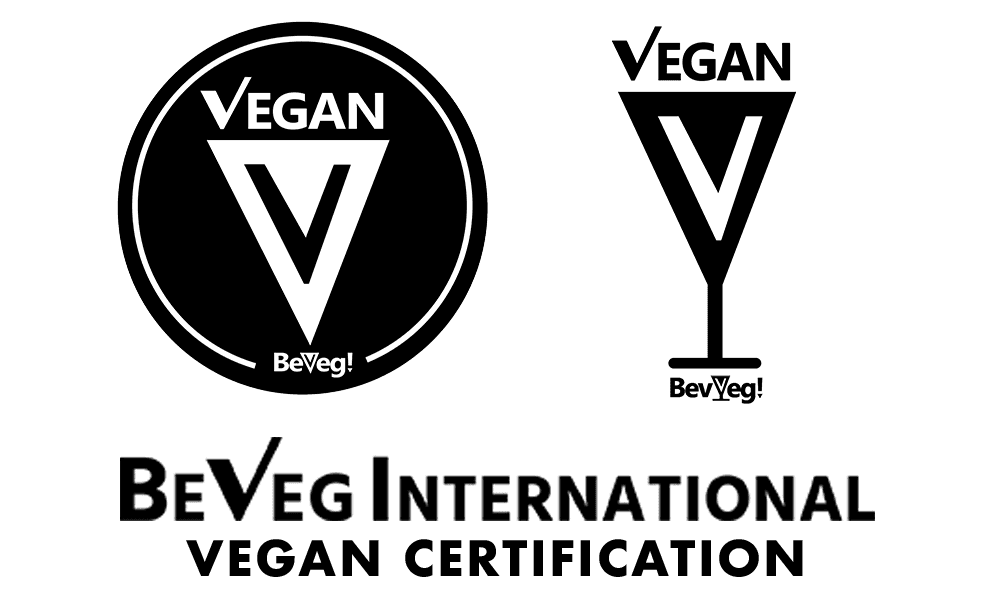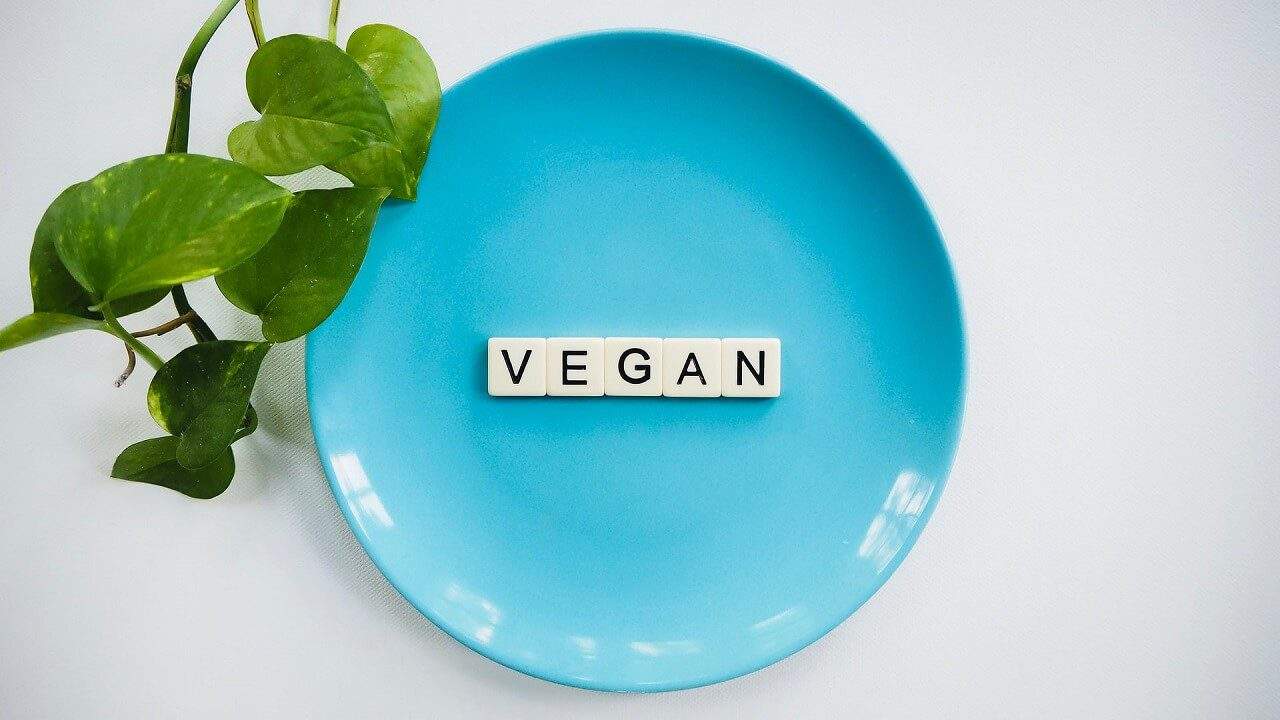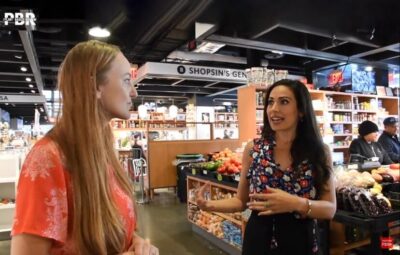BeVeg, Most Recognized Vegan Symbol
Best Vegan Certification Trademark – ISO Accredited – Get Vegan Certified

BeVeg International has defined a global conformity assessment program for vegan claims worldwide that standardizes claims and defines vegan in the most robust and credible way. BeVeg is the first vegan certification body in the world to gain global accreditation, for defining a vegan standard that is recognized by the world accreditation forum to be operating according to industry best practices. BeVeg is the best vegan certification trademark for companies looking to export globally.
ISO 17065 — Valid vegan certification for the world market, recognized by foreign certification bodies, and accredited by national and international institutions. The BeVeg vegan certification standard has an expressed scope aimed to satisfy the vegan consumer of products and services. As the first accredited Vegan standard in the world, BeVeg is best vegan certification trademark to achieve.
ISO 17067 — Valid vegan certification conformity assessment program for the world market, recognized by foreign certification bodies, and accredited by national and international institutions. The BeVeg Vegan certification program has paved the one for a singular global conformity program for vegan claims for consumer products and services, making it the best vegan certification trademark worldwide.

The BeVeg Vegan Standard is the best vegan certification trademark accredited by the National Accreditation Center, an accreditation organization under APAC, ILAC, and IAF. It is the only law firm managed vegan standard in the world, and was drafted in consultation with top industry experts. While the vegan standard is involved and technical, generally speaking, vegan means no animal ingredients or by-products used in the manufacturing process before packaging of the proposed vegan product, and confirms that the processing aids used and process applied to making the final BeVeg certified vegan product is also vegan. BeVeg asks for disclosures for all “incidental” and “insignificant” ingredients, including natural flavorings and natural colorings. Likewise, source ingredient manufacturers to listed parent ingredients are also investigated to ensure vegan integrity is maintained. For example, if sugar is used, proof that the manufacturer uses zero bone char (often disguised as “natural charcoal”) is required.
The BeVeg vegan standard was founded by an attorney, which brings credibility and integrity to this new and ever evolving area of law. Attorneys by nature are regulators, and that raises the bar for the BeVeg Vegan Standard. By requiring disclosures of ingredients and processes not currently required by Truth in Labeling Laws, and further investigating into whether the product manufacturing to packaging is outsourced or sub-licensed to a shared facility that may compromise the vegan integrity or cause cross-contamination, BeVeg brings consumer confidence to vegan claims through the best vegan certification trademark. There must not be any animal testing on the certified vegan product.
Vegan Label Law – Best Vegan Certification Trademark
Interview with Attorney Carissa Kranz
Have you been faced with confusion as a consumer at the grocery store? Most likely YES! Labels boasting words such as All Natural, Dairy Free, and Vegan just to name a few, can be overwhelming and misleading, even if you are a reader of back labels and ingredient lists, says attorney Carissa Kranz, founder of BeVeg Vegan Certification, in an interview with The Plant Based Review.
Products labeling vegan and marketing plantbased are hitting the stores with great consumer success. There is no doubt that consumer demand is driving the targeted vegan marketing for increased sales. As the consumer becomes more health conscious, compassionate, and environmentally aware, vegan-focused product sales are increasing at unprecedented rates. But along with this positive consumer shift comes the need for immediate structure and legalities to keep the industry honest and the consumer protected.
All things considered, clearly defined regulations and global standards are needed to ensure best industry practices are used. Meaning, implementation of best practices that are uniform taking into consideration compliance with international laws developing, disclosure of and non-use of animal-derived GMOs, ingredient research of main ingredient and source ingredient suppliers, consideration of animal testing, whether the manufacturing process is done at a shared facility, which could chance cross-contamination, among other details to consider when designing a globally trusted legal vegan symbol that stands behind this internationally defined and trusted vegan standard.
Law of the Labels
Best Vegan Certification Trademark
Vegan is not legally defined in any one jurisdiction in the world, and right now vegan claims lack credibility without certification by an accredited vegan trademark logo. That’s why BeVeg defined and set out vegan standards to follow. Lawyers by nature are regulators and BeVeg attorneys set out a global vegan standard, as evidenced by the BeVeg globally trademarked vegan symbols and the ISO accredited BeVeg vegan standard status. BeVeg has pioneered the movement in tandem with other leading leaders and industry experts. Join the movement and support the cause by applying for the best vegan certification trademark and aligning with the first, and only as of 2020, set out internationally accredited vegan standard in the world that was designed and approved to be a conformity assessment program.
To solve this consumer confusion, BeVeg launched a robust global vegan certification standard to bring integrity, honesty, accountability, and integrity to the vegan labeling process. This standard is accredited and audited to ensure continuous compliance with industry standards and expectations. After successful audit, companies can gain access to the world’s best vegan certification trademark.
The Need for BeVeg Vegan Certification
Without certification, vegan claims are empty, as they are asserted without a standard or definition to refer to. Basically, all vegan claims on packaging without credible independent verification lack meaning, as anyone can claim vegan.
The truth is, Truth in Labeling Laws and the Fair Packaging and Labeling Act of 1966 are laws put into place to minimize consumer confusion by requiring truthful and complete disclosures on packaging. While these laws are defined and in place, they do not protect vegans because the word, vegan, is not even a recognized term under the law. Current vegan claims, that are not verified and certified by an accredited vegan trademark, lack credibility because no one is holding these claims accountable, and everyone defines vegan differently. The fact of the matter is, self-proclaimed vegan labels are often misguided, incorrect, and even fraudulent. The reality is, anyone can label a product vegan, and everyone can have their own definition of what vegan means. That same product marketing vegan, may then apply for an official vegan certification seal, only to find out, after diligent ingredient research, that their product is not vegan at all. While current laws advocate for truth, transparency, and fair labeling, these laws fall short of their mission by failing to require the same truth and transparency in vegan claims. Vegan, in and of itself, still needs to be carved out in the law, which current laws can then naturally expand to protect. As we define vegan laws, and advocate for the protection of those laws, we must also look to existing legal guidelines as a framework to determine where or how vegan fits into the existing paradigm.

VEGAN LACKS DEFINITION. THE LAW PROTECTS TRADE SECRETS TO THE DETRIMENT OF TRUTH & TRANSPARENCY
The current system of labeling laws do not require rigorous disclosures from food and beverage manufacturers about the ingredients and techniques used in the creation of their products. For example, the law implies that manufacturers are allowed to protect trade secrets by: not requiring the labeling of the amount or concentration of ingredients; not requiring the disclosure of the manufacturing process; and by allowing ingredients that make up less than 1% of the product by weight may be listed in any order.
Likewise, other ingredients called “incidental additives,” do not have to be listed on labels. These include substances transferred to food or products via packaging and “ingredients of other ingredients” that are present at “insignificant levels” and have no “technical or functional effect.” Meaning, if the product is made at a shared facility, for example, and there’s a chance of cross-contamination where an animal by-product could end up in your final consumable product, the law says that’s an “incidental” ingredient and therefore, “insignificant.” The problem is, this is significant to a vegan, just like it’s significant for someone with a peanut allergy or dairy intolerance to know if a product was exposed to peanuts or dairy in the manufacturing process.
Moreover, The Food and Drug Administration (FDA) allows food manufacturers to round to zero any ingredient that accounts for less than 0.5 grams per serving. Yes, per serving. So while a product may claim “sugar-free” or “gluten-free” or “alcohol-fee,” it can in all actuality, legally, have up to .5 grams per serving, which adds up to significant levels of an ingredient worthy of disclosure. The same goes for vegan. The law, as it is now, would say that if it’s less than .5 grams per serving of some animal by-product or animal-gmo, it does not legally need to be disclosed by the manufacturer, and the product can still advertise vegan, because legally, those insignificant ingredients don’t really matter for disclosures to be complete, truthful, and accurate under the law. For the vegan interested consumer, this poses a real conundrum.
You may think current labeling laws are deficient for food, but it is even worse for alcoholic beverages, which are regulated by the Tobacco and Trade Bureau (TTB). Despite consumer demands for honest information, the TTB does not have any mandatory labeling requirements for ingredients, process, or nutritional information. Basically, you have no idea what is in your drink, or how it was made, and yes, a lot more goes into beer and wine than you think. According to the TTB, there are close to 70 ingredients that can be added to wine without disclosure, ranging from animal-based fining agents to color additives (like MegaPurple, a grape concentrate added to “color correct” wine), to stabilizers, and de-acidification processes. Many are surprised to learn that their alcoholic beverage may have been made with isinglass (fish bladder), gelatin (boiled cow’s elbows, knees, horse hooves), eggs, natural charcoal (bone char), to name a few. In terms of alcohol and the TTB, there is zero required ingredient and process disclosures, and therefore zero transparency.
As the consumer learns the law protects trade secrets to the detriment of the vegan consumer, and that Truth in Labeling Laws and the Fair Packaging and Labeling Act of 1966 do not extend protection or even consider vegan claims, at this time, the consumer is going to demand honest information. Honest information is not received by a self-proclaimed vegan claim by a product for marketing purposes. Rather, a valid vegan claim is from a company that has not only been transparent in giving the certification entity their ingredients, processes, and trade secrets, but forthcoming. A trusted vegan claim is a claim certified vegan by BeVeg, a trusted vegan symbol, because only then do you know that this product proved its vegan claim to a third-party and disclosed information, which current laws do not presently require disclosure of in order to claim vegan. Entities certifying vegan are raising the standard of the law by protecting the vegan interest, where the law currently fails to even recognize a vegan interest.

Time to define “Vegan” – Legally – Best Vegan Certification Trademark
The word “vegan” is not legally defined in any one jurisdiction in the world, and right now vegan claims lack credibility and legitimacy without certification, and a widely accepted standardized global definition. By instituting a global vegan definition that brings credibility and integrity to vegan claims, and by making vegan claims adhere to a legally binding standard, we instill consumer confidence and keep the industry honest.
The truth is, right now, anyone can claim vegan but in actuality, no one government entity in the world is holding these vegan claims accountable. What is the solution? BeVeg! BeVeg launched an internationally accredited binding standard, for us all to refer to as THE trusted, single, uniform standard that is also an ISO conformity assessment program for vegan.
BeVeg Certified Vegan Product: Not of animal origin. No animal cross-contamination. No animal exploitation and without animal suffering. A Vegan product to the expectant consumer means free-from animal material and cruelty-free. Vegan product labels are geared to those looking to make informed purchasing decisions shaped by the sincere desire to refrain from animal consumption and by those who wish to avoid cruelty and suffering to animals at all practical costs. Veganism goes far beyond plant-based food and dietary choices; it spans all industry sectors. All Vegan product claims are plant-based, but all plant-based claims are not necessarily Vegan. Likewise, not all Vegan claims are created equal. A Vegan certified product should mean it is not of animal origin, and that at no stage of the production and processing was there use of or supplementation with any animal ingredients, substrates, processing aides or other substances of animal origin in processed or unprocessed form (including additives, carriers, flavorings, and enzymes). There should be no cross-contamination with animal contaminants at the facility level, even if it was made at a shared facility due to BeVeg required standard operating procedures (SOPs) that ensure separation, segregation and a senior level commitment to the Vegan product label claim. There shall be no animal exploitation or testing that would cause animal suffering, on the final product, and as far as practicable in the supply chain. What is practical and reasonable is further defined and updated in the standard to fill the gray area gaps where the legal landscape, answers, and clarity are deficient.

Evolving Vegan Standards – Best Vegan Certification Trademark
Laws once drafted are constantly expanding and contracting to accommodate the evolution of society. What’s most important is that basic laws and basic structures are in place to protect the vegan interested consumer.
Many vegan labels exist with the intent to bring integrity and credibility to vegan claims. However, it is the wild west, as anyone can claim vegan and dream up a vegan standard, which begs the following questions: what does that vegan mark mean? what is the fine print behind that vegan standard? what is the real vegan standard? when will there be one global vegan standard we can all trust? What is vegan exactly? What is the best vegan logo?
Against this background, it is important to note that a few evolving vegan definitions exist, and all are similar in approach, and while better than a self-proclaimed vegan claim, varying vegan trademarks stand for varying vegan standards. While competition forces high level analysis and thought, many of the leading issues remain undefined. It is very difficult to strike a balance between no animal exploitation and practical application in a world that’s only recently turned its interest to plant-based living. Currently, there’s much debate on how far back one should travel to determine vegan origin. For example, do we consider soil practices to legally affect vegan certification status? If yes, does that mean we can no longer order a salad at a vegan restaurant because we don’t know how those vegetables were grown? Do we consider the use of bees to pollinate avocados, almonds and other crops not vegan? Do we consider animal testing of source ingredients not vegan, when some jurisdictions legally mandate that those source ingredients must be tested to be marketable?
There are many topics to discuss as a vegan definition evolves, and many of these questions pose great goals to have as we evolve in this world and become more conscious. However, we must also remember that, in order to affect change in the world, we need to meet the world where the world is now, and that means a practical solution to living with the smallest footprint possible on this planet, and patience with the evolution of that process. Extending vegan certification into soil practices is a great goal, but not necessarily practical at this time. Extending vegan certification to encompass how our plant-based crops were pollinated is also a great goal to have, but not necessarily practical at this time, as that would leave little food and nutritional products left for the vegan to consume. There should be another vegan certification mark entirely, that just addresses soil. In order to be a productive proponent of the vegan, plant-based, movement, we must be practical, rather than radical in our approach. We must exist in our present world, and not isolate our decisions. We must focus on the biggest matters at hand, like the fact that three billion animals are killed every 24 hours to feed the 6 billion people on this planet. We must stop the normalized violence on our plate and in our wardrobe, and halt the environmental devastation and deforestation caused by farming practices.
All of this must be considered as the world implements and understands the widely accepted BeVeg vegan definition.
Consumer Confidence

NO ANIMAL INGREDIENTS
used in the processing, clarification, filtration, de-acidification, or manufacturing process.

NO ANIMAL TESTING
on BeVeg certified product. BeVeg is cruelty-free.

NO CROSS CONTAMINATION
of incidental animal products or byproducts in the final product.

FULL DISCLOSURE
of all "insignificant" and “natural” ingredients, which the law does not require.




